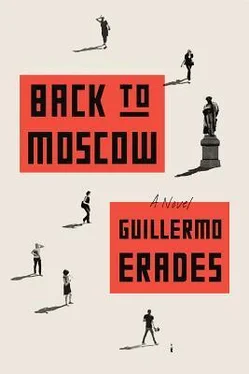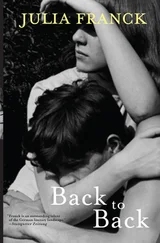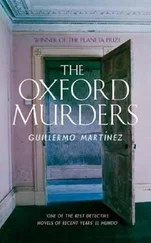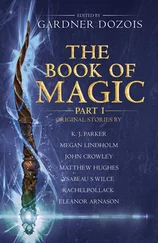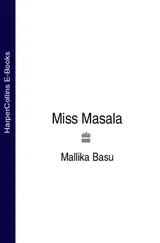I pointed to my block across the street. ‘That’s where I live.’
‘Above McDonald’s?’
‘On the other side of the block,’ I said. ‘You know the Scandinavia restaurant?’
‘Never heard of it.’
‘Would you like to come up for a cup of tea?’
‘I showed a flat in that block,’ she said. ‘A couple of months ago.’
‘It’s very central. I love it.’
‘Wonderful location,’ Tatyana said. ‘I don’t understand why you want to move somewhere else.’
I smiled, said nothing.
‘Is it noisy?’ she asked.
‘Not really. My balconies face the courtyard and I live on the top floor. There is a great view. I’ll show you. Let’s go up for a cup of tea.’
She stared at me in silence. For a few seconds we stood in the middle of the square. Cars piled at the traffic lights, expelling white fumes into the chilly night air. Muscovites rushed out of the metro, onto the street, cramming into McDonald’s, Café Pyramida, the Pushkin cinema. I could see the neon lights of the casino reflected in Tatyana’s eyes. Just above us stood Aleksandr Sergeyevich, leaning slightly forward, ready to descend from his pedestal. In the darkness of the night, Pushkin’s face revealed a soft smile.
Tatyana looked at her watch, then back into my eyes. She opened her mouth, as if about to say something, then closed it again without uttering a sound. I put my arm around her shoulder, squeezed her body against mine, gave her a kiss.
THE RAIN CAUGHT ME by surprise as I walked down from Mayakovskaya. I increased my pace, hoping to reach my apartment before the water soaked my clothes. A gust of wind came out of nowhere, flapping the advertising banners above Tverskaya with unusual strength. The sky dimmed to leaden grey, the rain thickened and — though only two minutes away from home — I had no choice but to take shelter from the storm. I stepped into the Stanislavsky theatre.
The entrance hall of the theatre was empty, aside from a babushka at the ticket booth. I smiled in her direction. She grumbled back. Waiting for the rain to clear, I began to study the posters on the walls. I noticed the babushka glancing my way above her thick glasses, frowning in a menacing manner — accusing me with her gaze of having entered her theatre under false pretences.
To dispel her suspicions, I approached the programme on the wall and ran my finger down the list of plays. After all, I could be a genuine theatregoer, interested in the shows the Stanislavsky had on offer. When I peeked back at the babushka I could see she was irritated, impatient, about to ask me to leave. Outside, the rain was battering the pavement with increasing force, forming lakes and flooding the asphalt. Realising that I would have to stay inside the theatre for a while, I approached the booth and asked the cranky babushka for the best pair of tickets available for the evening performance.
That night’s show turned out to be a play based on Bulgakov. I placed a thousand-ruble note on the counter and, after checking its validity against the light of a table lamp, the babushka relinquished the tickets and the change, still reluctantly, as if suspicious of my intentions.
When the rain eased off I rushed home. I changed into dry clothes, boiled some pelmenis for lunch and lay on the couch. Tatyana and I had agreed to meet that evening.
A month had passed since we’d met and Tatyana was now spending two or three evenings a week in my flat. After dinner, we would linger at the kitchen table, brewing tea with the samovar, and she would tell me about her day: how the price of real estate was going up, about the difficult clients she had, mostly expats who were looking for perfect apartments but were stingy with their budgets.
Tatyana’s angelic beauty — her blonde curls, soft smile, trusting green eyes — stirred something buried deep inside me. Even the gap in her front teeth, the only imperfection in her otherwise faultless face, made her real, provincial, likeable. For some reason, I often found myself picturing Tatyana and myself from an outsider’s point of view, as if we were actors in a film. Cooking at home, walking in the street. Every time Tatyana was next to me, I would pose for an imaginary viewer.
I fell asleep on the couch. When I woke up I made some tea, picked up my book of Chekhov’s plays, sat by the balcony. It had stopped raining. The sky was now white.
I started to read bits from Three Sisters . I went through the first act, pondering Irina’s daydreaming of Moscow and the symbolic value the city acquired in the play.
Chekhov had turned Moscow into a symbol of yearning, standing for things left behind and for the unreachable horizon that lies ahead.
After finishing the first act, I looked up from the book and saw the city extending away beneath my balcony, the white sky pierced by soviet constructions and red-brick chimneys. The wet roofs and terraces reflected the brightness of the sky like pieces of broken mirror. I thought how different my Moscow was from Chekhov’s Moscow, the city the three sisters dreamed about. And yet, the enormous amalgam of buildings and squares and wide avenues continued to capture the dreams of thousands of people, like Tatyana and myself, who, coming from different places, had been brought together by the city. I wondered whether being in Moscow made us happier.
Tatyana had left her hometown in Siberia — her babushka, her family — to search for a better life in Moscow. Had she dreamed in Novosibirsk about Moscow? Now that she was in the city, with a job and a few friends, now that she had me, was she happier than before?
‘We want happiness,’ Vershinin says in Anton Pavlovich’s play, ‘but we are not happy and we cannot be happy.’
Tatyana came over just after six. She hung her faux-leather handbag on the kitchen door handle, kissed me.
‘I have something for you,’ I said, handing her the pair of theatre tickets.
She grabbed the tickets and, before even looking at them, thanked me with another kiss.
‘Tickets to the theatre,’ she said, with a broad smile, her eyes shining. ‘Great, I haven’t seen this play. I only saw the film. An old soviet film, in black and white, very good one.’
‘I’m glad you like them,’ I said. ‘Would you like to eat something before we go or should we just grab a bite afterwards?’
She looked back at the tickets. ‘But they are for today ?’
‘The show’s in an hour.’
‘But you should have warned me,’ she said, anxious.
‘It’s supposed to be a surprise. A change from watching a movie on the couch.’
Tatyana’s smile was gone. ‘But I didn’t know we were going to the theatre.’
‘It’s the Stanislavsky theatre,’ I said, ‘just around the corner, a two-minute walk.’
She looked at me, her face red. ‘But I have nothing to wear.’
‘What do you mean? You look great like this.’ She was wearing a black jacket and a black skirt, which I found quite elegant.
‘These are not theatre clothes. If you had told me I could have brought a nice dress from my flat.’
‘If I had told you then it wouldn’t have been a surprise. Don’t worry, it’s a small theatre, not a fancy opera. You look really good.’ To emphasise my words I kissed her again.
She was unconvinced. But, noticing my disappointment at her reaction, she forced a smile. ‘At least this is not Novosibirsk,’ she said. ‘Nobody knows me here. I’ll try to look my best.’
Tatyana took her cosmetics bag into the bathroom and locked the door behind her. First I heard the shower, then a hairdryer, which she must have had in her bag because I didn’t own one. Then I heard more water, and then silence for at least thirty minutes.
Читать дальше
